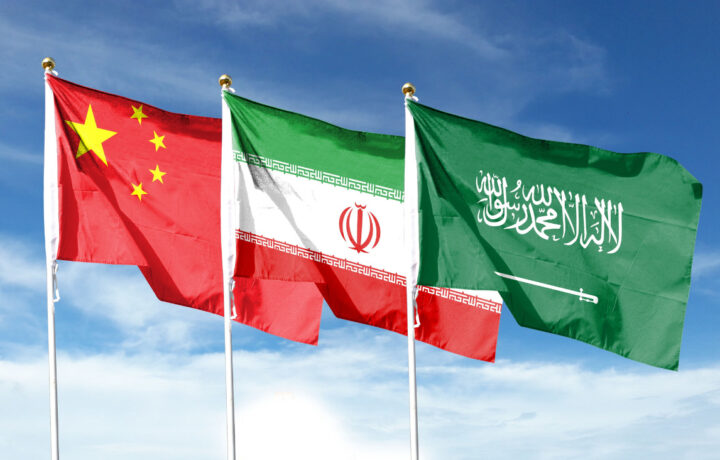This past year, a 25-year deal for improved relations between Iran and China was initiated. China has expanded ties with Iran, while committing to five-year plans with six other Gulf countries, including Saudi Arabia. China’s president Xi Jinping met with Gulf leaders in 2022, along with a meeting hosted by Saudi Arabia.
Iranian President Ebrahim Raisi’s recently visited China, the largest energy consumer in the world. Analysts believe China’s vision for Iran is not limited to energy issue, although it is of great importance to Beijing. China’s desire for relationships with Iran and other gulf nations goes back years.
China Steps in While Russia is Preoccupied
Russia has traditionally played the leading relationship role in Iran. However, with Moscow’s preoccupation with Ukraine, China has stepped up to fill the void and is now playing a leading political role in this part of the world. Further, in light of the war in Ukraine, numerous countries are in the process of rewriting their rules within world order while China refreshes their long-term strategic direction.
To that end, last week China played an instrumental role helping to improve Saudi/Iranian relations. The Chinese brokered a trilateral agreement to reestablish Iranian and Saudi Arabian diplomatic relations, which took many Western policymakers by surprise.
While brokering deals in the Middle East, Xi’s administration has relaunched a campaign to challenge U.S. and the West in recent warnings of “conflict and confrontation.” In the trilateral statement released Friday, both Saudi Arabia and Iran “expressed their appreciation and gratitude” to China for facilitating the talks and the “noble initiative” for having agreed to sponsor the negotiations.
7 Years of Conflict between Saudi Arabia and Iran
The conflict between Saudi and Iran runs deep. Religious differences have played a significant role, with Saudi Arabia portraying itself as the world’s leading Sunni nation. Iran on the other hand views itself as the defender of Islam’s Shiite minority. Some analyst argue politics have played a heavier role than religion, in the divide.
Relations between Iran and Saudi Arabia soured with the kingdom breaking ties with Iran in 2016. At that time, Saudi Arabia beheaded a Shia cleric and critic of the Saudi government along with 46 others. Afterwords, protesters invaded the Saudi diplomatic posts in Iran.
Subsequently, Iran was blamed for multiple attacks on Saudi Arabia including the targeting of the countries’ oil industry in 2019, severely reducing the kingdom’s crude production. Yemen’s Iranian-backed Houthi rebels claimed responsibility for the attack, and Western nations blamed Tehran. As more attacks occurred, Iran continued to deny everything.
Better times ahead?
China is credited with a big win in the trilateral agreement, but there are numerous potential ramifications clouding the future. In recent years, significant progress has been made with Israeli and Saudi relations. With Iran frequently calling for the destruction of Israel, will the new agreement halt the progression of Israeli / Saudi Arabian relations? Could the new Saudi-Iran ties reduce conflicts in Lebanon, Yemen, Iraq and Syria. Is the U.S. loosing ground in the Middle East? It may be to early to predict the clear winners and losers of the deal.
Where was the U.S. during the deal making?
Since the fall of the Shaw in Iran and U.S. embassy and hostages in Tehran situation, U.S. / Iranian relations have been almost non-existent. Almost 40 years later, with failing progress, the U.S. unilaterally withdrew from Iran’s nuclear deal with world powers in 2018.
This regretfully complicates U.S. foreign policy in the Middle East after the tremendous energy and efforts extending over the past 50 years. Today, analysts believe the U.S. focus on countering peer rivals China and Russia rather than continued post 9-11 counter terrorism activities, is allowing the Middle East to rearrange ties with Washington and Beijing. As Chinese alliances in the Gulf grow, the U.S. is now warning that the new partnerships could impact sensitive issues, such as acquisition of F-35s.
Over the weekend, White House press secretary Karine Jean-Pierre stated the U.S. officially welcomed “any efforts to help end the war in Yemen and de-escalate tensions in the Middle East region.” Less optimistically, the State Department also commented on the agreement: “Of course, it remains to be seen whether the Iranian regime will honor their side of the deal.”
The agreement between Iran and Saudi Arabia to reestablish diplomatic relations has cast China as a leader in Middle Eastern politics. This role has previously been reserved for superpowers like the U.S. and Russia. This agreement is perhaps signaling that China’s diplomatic clout is now on par with its global economic influence.




